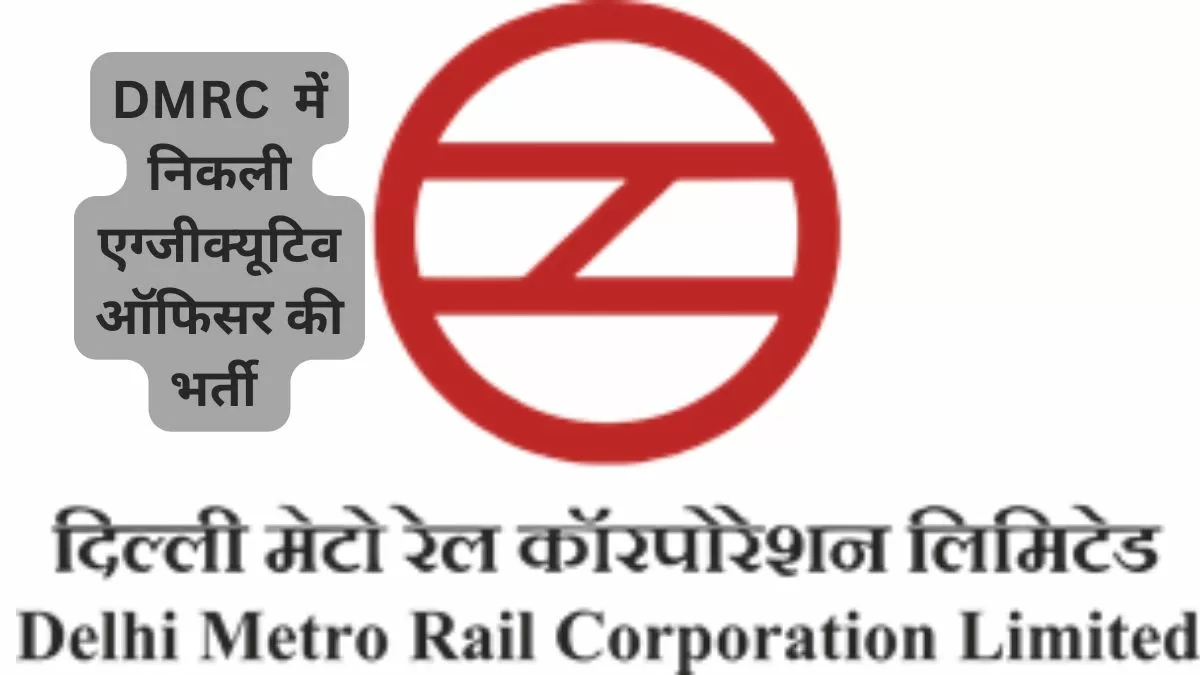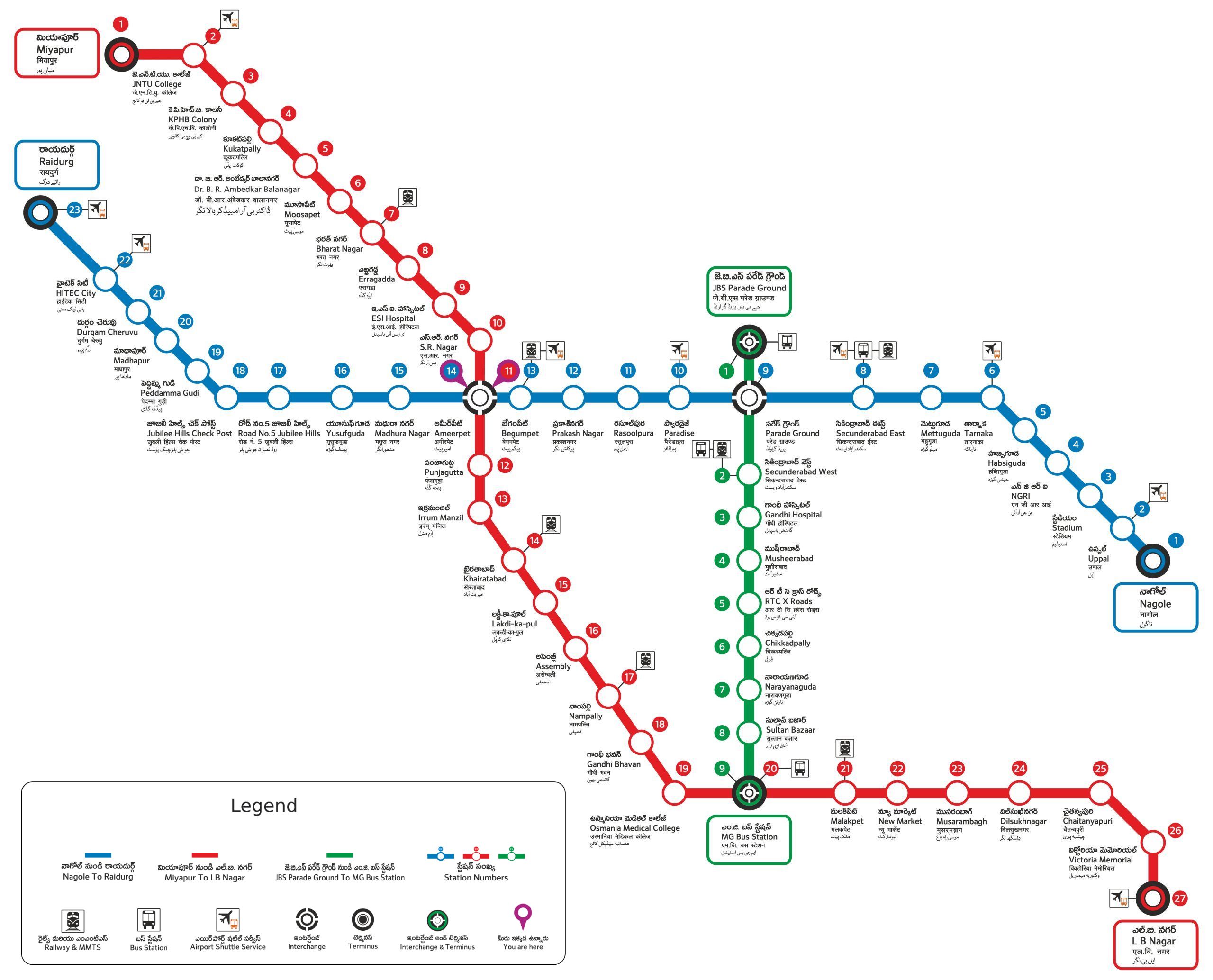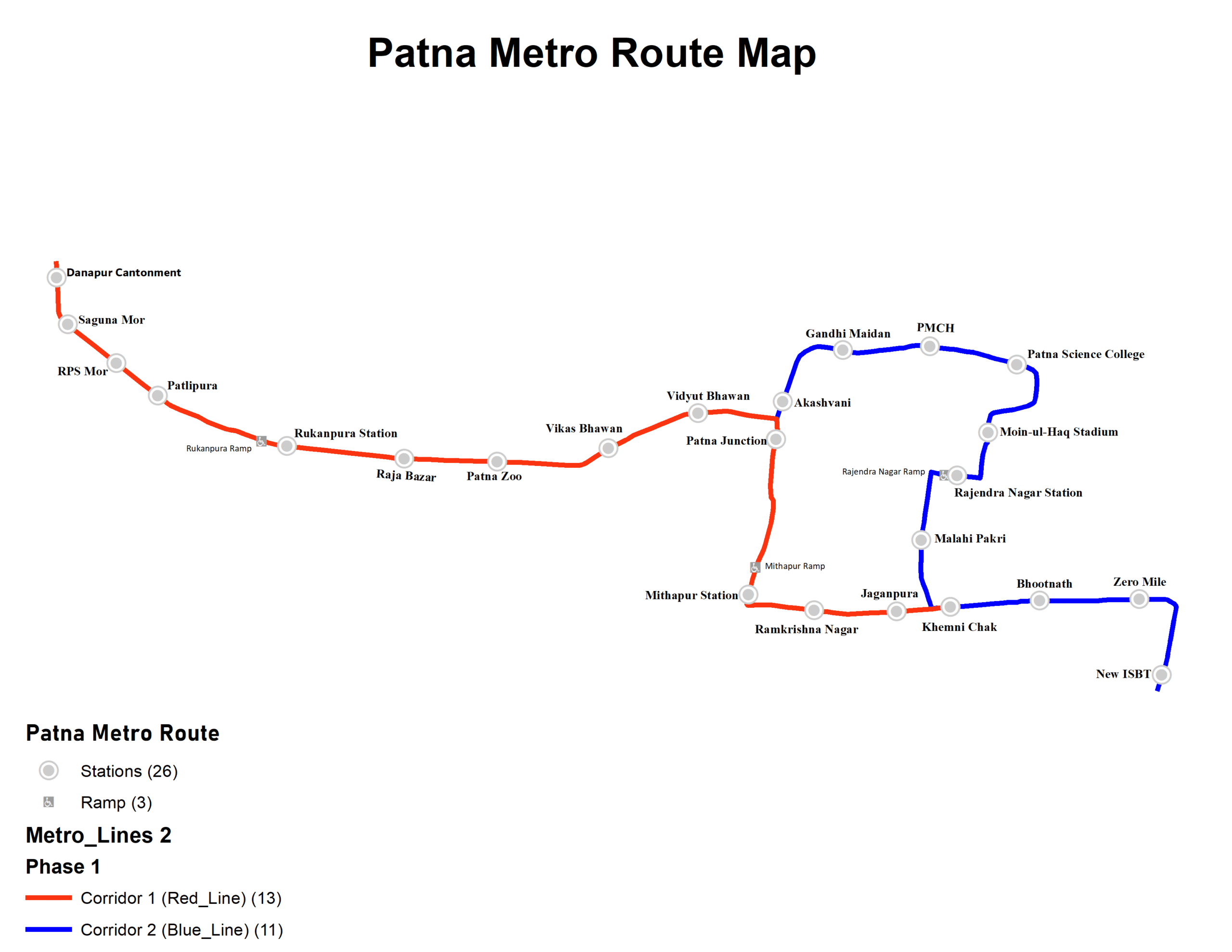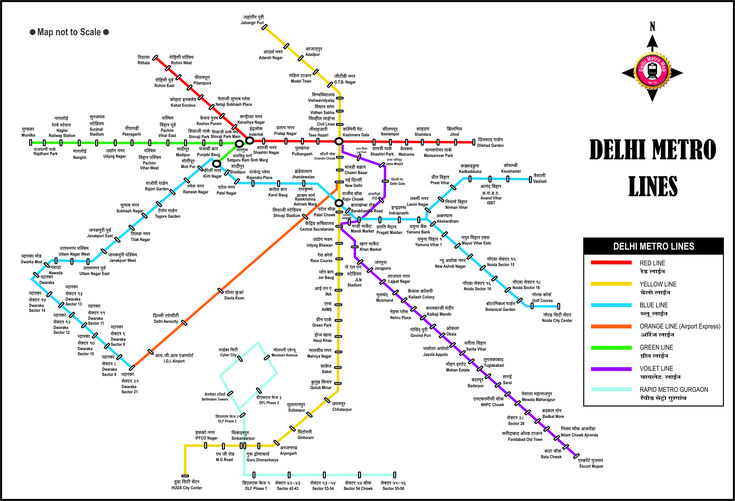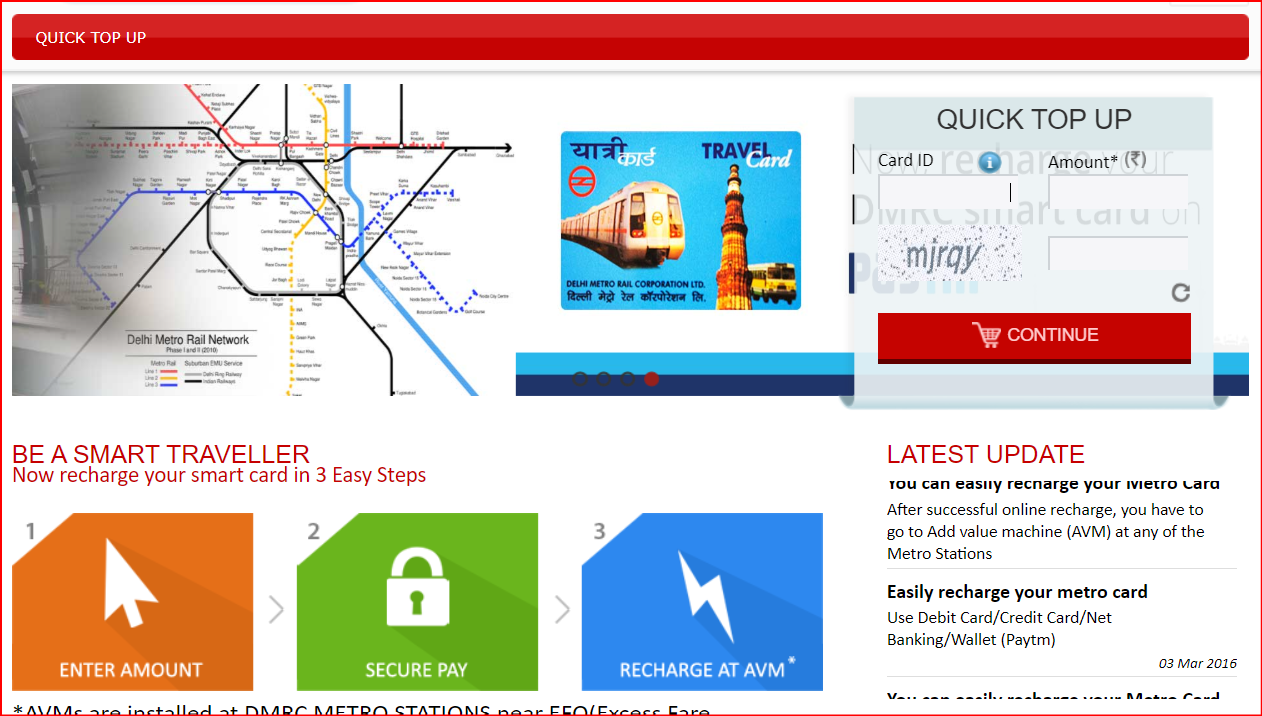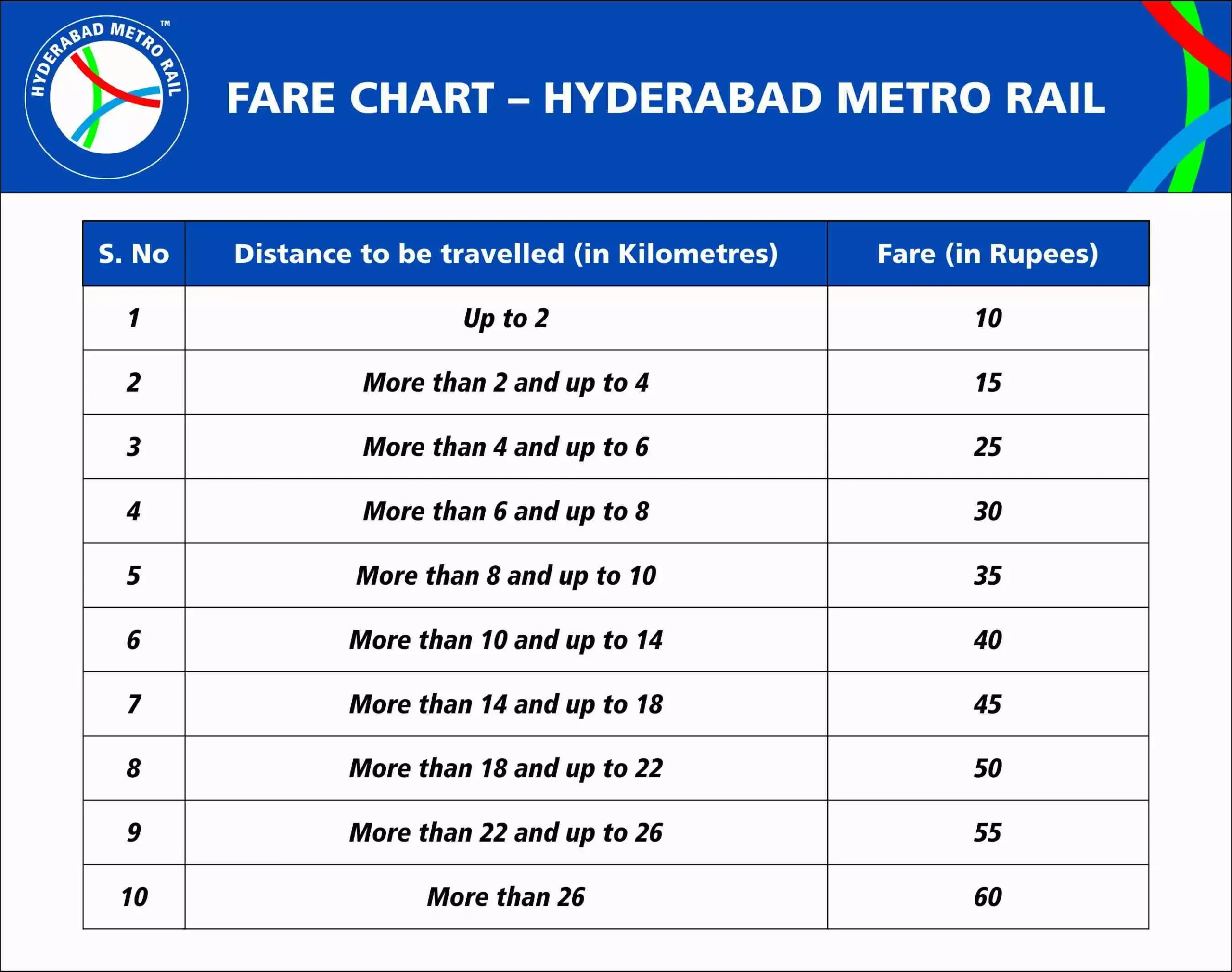The Delhi Metro Rail Corporation (DMRC) is one of the most successful urban transport projects in India. Established in 1995, DMRC has transformed the way millions of people travel in Delhi and the National Capital Region (NCR). Known for its punctuality, cleanliness, and world-class infrastructure, DMRC has become a model for metro projects across India and abroad.
In this blog, we will cover everything you need to know about DMRC, including its history, network, achievements, ticketing system, jobs, and future expansion.
What is DMRC?
The Delhi Metro Rail Corporation (DMRC) is a government-owned company responsible for building and operating the Delhi Metro. It is a joint venture between the Government of India and the Government of the National Capital Territory (NCT) of Delhi, both holding equal equity shares.
DMRC is responsible for:
- Planning and construction of metro lines
- Operating and maintaining metro services
- Expanding the network to NCR regions (Noida, Ghaziabad, Gurgaon, Faridabad, Bahadurgarh)
- Ensuring safety, punctuality, and world-class services
Metro Ticket Price in India Here is Chart of Metro Trian ticket Price
History of DMRC
- 1995: DMRC was incorporated as a public sector company.
- 1998: Construction of Delhi Metro began.
- 2002: First line (Red Line, Shahdara to Tis Hazari) inaugurated by Prime Minister Atal Bihari Vajpayee.
- 2011: Delhi Metro became India’s largest metro network.
- 2020 onwards: Expanded to cover NCR regions and introduced modern facilities.
- 2025: More than 390 km of operational network with over 290 stations.
Delhi Metro Network Operated by DMRC
The DMRC operates one of the largest metro networks in the world. It covers Delhi and nearby cities in NCR.
Operational Lines:
- Red Line – Rithala to Shaheed Sthal (Ghaziabad ISBT)
- Yellow Line – Samaypur Badli to HUDA City Centre (Gurgaon)
- Blue Line – Dwarka Sector-21 to Noida Electronic City / Vaishali
- Green Line – Kirti Nagar / Inderlok to Brigadier Hoshiar Singh (Bahadurgarh)
- Violet Line – Kashmere Gate to Raja Nahar Singh (Ballabhgarh)
- Pink Line – Majlis Park to Shiv Vihar
- Magenta Line – Janakpuri West to Botanical Garden (Noida)
- Grey Line – Dwarka to Najafgarh / Dhansa Bus Stand
- Orange Line (Airport Express) – New Delhi Railway Station to Dwarka Sector-21
Each line is color-coded and clearly shown on the DMRC Metro Map for easy navigation.
Key Features of DMRC
- World-Class Infrastructure – Modern stations, escalators, lifts, air-conditioned coaches.
- Eco-Friendly – Runs on electricity and reduces carbon emissions.
- Safety & Security – CCTV monitoring, CISF security, women’s coaches.
- Punctuality – Average train frequency of 2–5 minutes.
- Accessibility – Special facilities for differently-abled passengers.
- Digital Services – Smart cards, mobile apps, QR code tickets, and online recharge.
DMRC Ticketing System
Traveling in Delhi Metro is easy and affordable. DMRC provides two main ticketing options:
- Metro Smart Card
- Rechargeable and valid for multiple journeys
- Offers 10% discount on fares
- Can be recharged online (Paytm, PhonePe, DMRC website) or at stations
- QR Code Ticketing
- Passengers can generate QR-based tickets on mobile apps
- Contactless, safe, and fast
- Tokens
- Available for single journeys
- Purchased at counters or vending machines
Delhi Metro Map 2025 Pdf Download HD Quality
DMRC Smart Card Online Recharge
DMRC allows online recharge through:
- Official DMRC Website (dmrcsmartcard.com)
- Paytm, PhonePe, Google Pay
- Metro station kiosks & AVM machines
After recharge, passengers need to validate the card at AVM (Add Value Machine) available at metro stations.
DMRC Jobs and Careers
The Delhi Metro Rail Corporation is also a popular employer, offering thousands of jobs in technical and non-technical fields.
Career Opportunities:
- Civil Engineers, Electrical Engineers, Mechanical Engineers
- Train Operators, Station Controllers
- Customer Relations Assistants
- IT & Administrative Staff
- Safety and Security Personnel
Recruitments are generally announced on the official DMRC website (www.delhimetrorail.com) through notifications and exams.
Achievements of DMRC
- First metro system in India, started in 2002.
- One of the largest metro networks in Asia.
- Successfully expanded into NCR cities – Noida, Gurgaon, Ghaziabad, Faridabad.
- Built India’s first fully automated driverless metro train (Magenta Line, 2020).
- Recognized globally for on-time completion of projects.
- Achieved Carbon Credit Certification from the United Nations for reducing pollution.
DMRC Expansion and Future Plans
DMRC is constantly working on expanding its network to connect more areas in Delhi NCR.
- Phase 4 Expansion: Under construction with more than 60 km of new lines.
- New Corridors: Extensions towards Narela, Dwarka, Saket, Burari, and airport connectivity.
- Driverless Trains: More lines to get automatic driverless trains.
- Green Initiatives: More solar power usage at stations.
By 2030, DMRC plans to cover over 450 kilometers across Delhi NCR.
DMRC and Smart City Development
The role of DMRC goes beyond transportation. It supports smart city development by:
- Reducing traffic congestion on roads
- Promoting eco-friendly travel
- Encouraging urban planning around metro stations (Transit-Oriented Development)
- Connecting housing colonies, offices, and educational hubs with metro lines
Tips for DMRC Passengers
- Always carry a metro smart card for convenience.
- Avoid peak hours (8–10 AM and 5–8 PM) if possible.
- Check DMRC official website or app for fare, route, and train timings.
- Follow security rules and keep belongings safe.
- Use interchange stations (Rajiv Chowk, Kashmere Gate, Hauz Khas) to save time.
Conclusion
The Delhi Metro Rail Corporation (DMRC) is not just a transport service – it is the backbone of Delhi NCR. With world-class infrastructure, affordable fares, and constant expansion, DMRC has set a benchmark for urban transportation in India.
From its first run in 2002 to driverless trains and QR code tickets in 2025, DMRC has revolutionized travel for millions. As it continues to expand, it will make Delhi NCR one of the best-connected metropolitan regions in the world.
